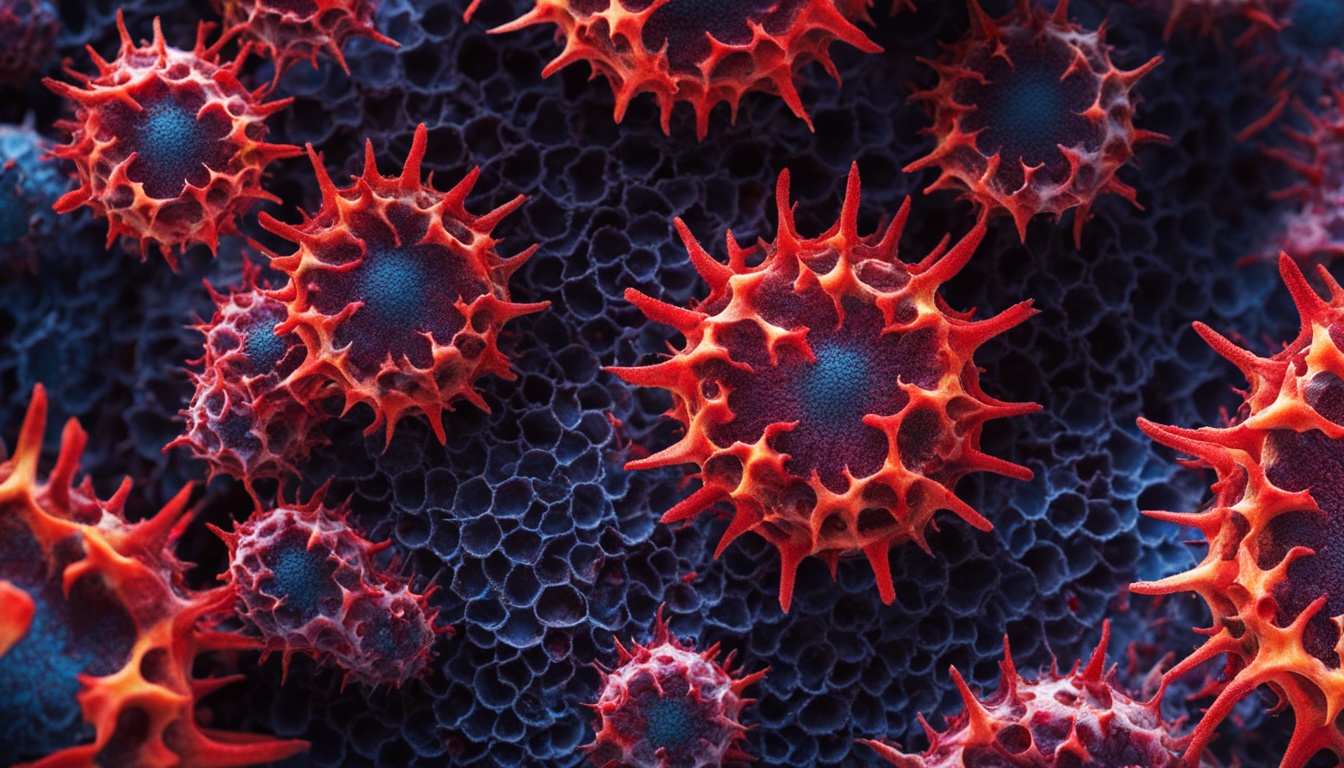Rubella, known as German measles, is very contagious. It spreads through respiratory droplets, starting about 7 days before a rash appears. Its symptoms are mild fever, headache, and a rash that starts on the head and face.
The rash then spreads over the body. Rubella can cause serious issues for pregnant women. It might lead to miscarriage, stillbirth, or birth defects. To prevent this disease, getting the MMR vaccine is crucial, especially for children between 12-24 months.
Stem cell therapy is a new approach studied for rubella treatment. The aim is to use stem cells to help the immune system fight the virus better.
Key Takeaways:
- Rubella, also known as German measles, is a highly contagious infectious disease caused by the rubella virus.
- The symptoms of rubella include fever, headache, fatigue, sore throat, runny nose, and a rash.
- Pregnant women infected with rubella are at risk of complications such as miscarriage, stillbirth, or birth defects.
- Vaccination, particularly the MMR vaccine, is the best way to prevent rubella.
- Stem cell therapy is being studied as a potential treatment for rubella.
Complications of Rubella in Pregnancy
Rubella infection during pregnancy can be very serious for the baby. It can lead to issues like miscarriage, stillbirth, or birth defects in the first 3 months. The most serious problem is called Congenital Rubella Syndrome (CRS).
What is Congenital Rubella Syndrome?
When a pregnant woman catches rubella, the fetus can be infected too. This can cause a variety of birth defects. These include small head size, intellectual disabilities, hearing loss, heart defects, and eye problems.
Preventing rubella in pregnancy is key. Being immune to rubella before pregnancy helps a lot. If you’re not immune, the MMR vaccine is recommended.
Avoiding people with fever, rash, and children with congenital rubella is a good idea. This helps lower the risk of getting rubella during pregnancy.
Rubella Prevention and Vaccination
Vaccination stops rubella best. Give the MMR shot to kids aged 12-24 months. It prevents measles, mumps, and rubella, making them safer. The vaccine helps a lot in public health.
The MMR shot might cause mild effects like a small fever. But, these are short-lived. Remembering the big picture, we help keep our kids and groups healthy.
For moms-to-be, checking your immunity to rubella is key. If you’re not immune, get the vaccine before you get pregnant. This keeps both mom and baby safe. Always talk to your doctor first about your health.
Rubella shots are usually good and safe. But, if you’re really sick or allergic to parts of the vaccine, talk to your doctor before getting it. Following your doctor’s advice is crucial for your health.
The WHO and countries aim to wipe out rubella by vaccinating more kids and young women. This teamwork and focus on prevention will keep rubella at bay and our communities healthy.
FAQ
Q: What is rubella?
A: Rubella, known as German measles, is a highly contagious disease. It’s caused by the rubella virus.
Q: How is rubella transmitted?
A: The virus spreads through the air. It starts about 7 days before a rash appears.
Q: What are the symptoms of rubella?
A: Symptoms include fever, headache, and feeling tired. A rash begins on the head and face.
It spreads to the rest of the body. There’s also a sore throat and runny nose.
Q: What are the risks of rubella in pregnancy?
A: Rubella poses risks if caught during pregnancy. It can lead to miscarriage, stillbirth, or birth defects.
Q: How can rubella be prevented?
A: Vaccination is key to preventing rubella. Children aged 12-24 months are given the MMR vaccine.
Q: Is there any innovative treatment for rubella?
A: Currently, stem cell therapy is being researched for rubella treatment.
Q: What are the consequences of rubella infection during pregnancy?
A: In pregnancy, rubella can impact the fetus severely. It may cause birth defects or other serious problems.
Q: What are the birth defects associated with congenital rubella syndrome?
A: Congenital rubella syndrome leads to various birth defects. These include intellectual disabilities, heart defects, and more.
Q: How can rubella infection during pregnancy be prevented?
A: Women should check their immunity to rubella before pregnancy. If needed, they should get the MMR vaccine.
They should avoid those showing rubella symptoms, like fever or rash, and children with the disease.
Q: What is the best way to prevent rubella?
A: The top way is through vaccination. Children from 12-24 months are advised to get the MMR vaccine.
Q: What are the side effects of the MMR vaccine?
A: The vaccine might cause a mild fever, swollen lymph nodes, or joint pain.
Q: When should women planning to become pregnant receive the rubella vaccine?
A: They should get tested and vaccinated, if needed, 1-3 months before trying to get pregnant.
Q: Who should not receive the rubella vaccine?
A: People with weakened immune systems should not get the vaccine. It’s also risky for those severely allergic to its components.
Q: What are the efforts being made to eliminate rubella?
A: The World Health Organization and countries aim to wipe out rubella. This is done through extensive vaccination efforts.

